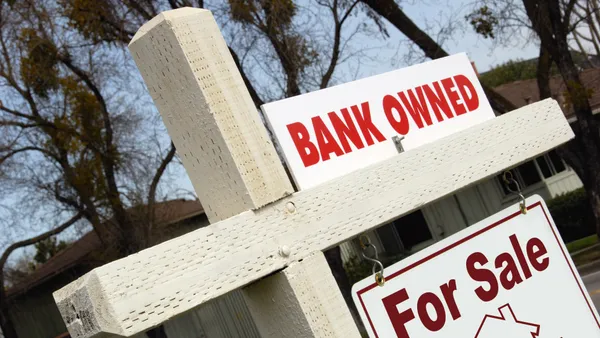Dive Brief:
- Failed San Francisco-based bank First Republic had an especially large multifamily presence in its home market. The bank financed eight apartment deals in the first quarter of 2023, constituting 40% of the volume in the city, according to Toronto-based professional services and investment management company Colliers.
- As a result of the collapse of First Republic, multifamily borrowers in San Francisco may have to seek other sources of financing in an already difficult market. “Uncertainty surrounding First Republic Bank, the most active lender in the market, is likely to cause investors and buyers to turn to alternative financing options,” Colliers said in the report.
- Buyers may turn to cash purchases, private lenders, seller carry and other nontraditional sources of funding. “As a result, the market may see a shift toward smaller deals and more creative financing structures as investors look to make the most of available resources and opportunities,” the report said.
Dive Insight:
On Monday, California’s Department of Financial Protection and Innovation closed First Republic and appointed the Federal Deposit Insurance Corp. as receiver. First Republic’s 84 locations in an eight-state footprint reopened under the JPMorgan Chase banner Monday.
JPMorgan Chase Bank will assume all of the deposits and substantially all of the assets of First Republic. The nation’s largest bank is taking in roughly $173 billion of First Republic’s loans, $30 billion of securities and $92 billion in deposits as part of the deal.
First Republic’s failure comes on the heels of similar collapses by Silicon Valley Bank, also based in Northern California, and Signature Bank, based in New York City, in March.
Like First Republic, Signature had a major foothold in its home market. It financed approximately 3,000 multifamily buildings that were home to about 80,000 tenants in New York City, according to University Neighborhood Housing Program’s Building Indicator Project data cited by Gothamist.
Michael Feldman, owner of property manager Choice New York Cos., said Signature was “at the forefront of real estate lending and banking in the New York metro for a prolonged period of time,” but the overall effects should be minimal.
“Since the depositors have been guaranteed, in the end, this should be just another hassle and inconvenience for real estate owners rather than an apocalyptic event,” he told Multifamily Dive.
Click here to sign up to receive multifamily and apartment news like this article in your inbox every weekday.











